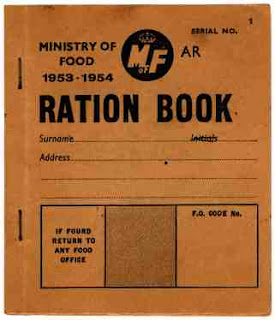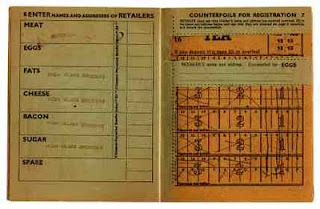A few nights ago, we found ourselves staring at the television (as we often unfortunately do during the week). Nothing on except some Richman guy eating a sandwich three times the size of a Karmann Ghia and begging Bourdain to take him on, and assorted reality shows involving vapid, bikini-clad yahoos ready to scratch each other’s eyes out to get the man of their dreams.
Anyway, we twirled the proverbial dial until we hit on something we liked, and of course, it had to do with Queen Elizabeth. Because whenever things go flat on the tube, we seem to always be rescued by royalty of one sort or another, be it Windsor or Kennedy. And no matter how I try to say no, I am not interested in the royals, they’re still so oddly compelling to me. Especially the British ones. And especially HRH.
I grew up around a lot of British folks. One of our neighbors growing up was a woman named Janice, who was a dead ringer for Petula Clark. She worked at the new Vidal Sasoon in Manhattan and was the very first person to ever give me a proper haircut, when I was five. I swooned. She called me love. What can I say. It was either her, or my grandmother screaming at me to sit my ass down in the chair and not move while she trimmed my bangs. I chose Petula, and the rest, I guess, is history.
Then I went away to sleepaway camp, and out of forty or so counselors, thirty-nine of them were British. So while most kids came home from camp knowing how to play kickball and knock hockey, I came home knowing how to play cricket, rounders, and European handball. I could sing all three verses to Jerusalem, straight out of the Anglican hymnal, even though we were Jews, and my camp was a Jewish camp. When I started calling dinner “tea,” my mother drew the line in the sand. I was nine.
But the dye was cast, and there was some deep parental suspicion that I would ever return to the States after I spent a semester studying at Gonville & Caius College, in Cambridge, in 1983. I arrived at the start of the hottest summer “since the end of the War,” and found myself living in rooms that faced the bustling Cambridge market. And after having my first meal as a student, which consisted of a slice of venison pie and a Scotch egg, I realized why so many of my English friends referred to vegetables as “lovely.” The truth is, by the end of my stay in England, I had actually eaten more vegetables than I’d ever eaten anywhere in my life. Sure, there were kippers and assorted pies and pasties (pronounced with a soft a, not a long one; the latter refers to the things that strippers wear). There was even gooseberry fool, which I found quite hilarious.
But there were also courgettes and aubergine. Sweet onions and fresh garlic. Gobs of tomatoes and tons of basil. And peas? I could weep when I think of the peas. And the cost of them compared to the cost of the skanky mutton pie that was as gamey as a hunk of roadkill in the middle of the Sonoran Desert in August? Beans.
This all brings me back to the show that I was watching the other night, about the royals, and HRH. It was 1947 and England was in the depths of an exhausting sort of metaphysical depression that you could literally see on the people’s faces: they had just been through an excruciating war from which they managed to emerge victorious. Although it was over, the rationing was not, and HRH was said to have saved up her ration cards in order to buy the material for her wedding dress, which she wore on November 20th, at Westminster Abbey. Apocryphal? I don’t know, but somehow I doubt it.
Anyway, I realized that those faces that I was watching–sullen, completely exhausted, gray–belonged to people who couldn’t get their hands on a lot of stuff that might have offered them some solace: milk, meats, dairy–you name it. Even clothes. So who was Elizabeth David to come along and basically demand that they go out and find an eggplant and some olive oil? Shortly after those clips were filmed, Mrs. David, who wound up working for the Ministry of Information in Egypt during the War (a fact that I always found deeply suspicious no thanks to seeing The English Patient eighty seven times), was putting the finishing touches on Mediterranean Food, and imploring readers to seek out the simple ingredients that would forever change their lives and the future of British cooking. The impact of this book, which was also packed with parsimonious recipes like soup with leftover risotto, was not unlike that scene in The Wizard of Oz, when the gray scrim is pulled away from Dorothy’s Dust bowl and she lands in technicolor land.
This is not to say that a good Scotch egg is something to sneeze at; it’s not, and it’s still a favorite of mine. But when I got to Cambridge in the early 1980s, during a time of pretty serious recession and crazy unemployment (much like what Americans are in now), one thing became clear to me very quickly: the number of markets selling all manner of fruit and vegetable was vast, and most students (myself included) frequented them to the exclusion of the local Wimpie’s. Why? For one thing, a plate of perfectly cooked Italian vegetables–perhaps sliced and grilled or roasted, and drizzled with a little olive oil and a drop of fresh lemon–is a thing to behold. It’s easy to prepare. It’s unencumbered by obnoxious vertical excess. And it can be very, very inexpensive. And Elizabeth David knew that.
Back in 1950, David threw open the curtains and let in some fresh air on the British culinary psyche when she first published her book. And even though rationing (which ended officially in 1954) made it difficult to obtain many basic ingredients much less “foreign” ones, her book accomplished wonders, including showing scores of meat-lovers that even when money is scarce, delicious food can be had for very little.
The only thing it requires, really, is simplicity.
Stuffed Tomatoes a la Grecque
(from Mediterranean Food)
Cut off the tops of a dozen large tomatoes, scoop out the flesh and mix it with 2 cups of cooked rice. To this mixture add 2 tablespoons of chopped onion, 2 tablespoons of currants, some chopped garlic, pepper, salt, and, if you have it, some left-over lamb or beef. Stuff the tomatoes with this mixture and bake them in a covered dish in the oven, with olive oil.
Better than pasties, I promise.







Great article. Shall send this article to my mum in England. I was 7 when rationing ended. I can remember the first time I had an orange in 1954.